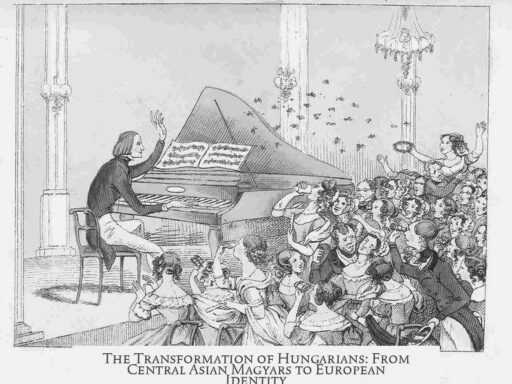Sigmund Freud’s ideas were influential but mixed in usefulness for treating patients. He is known as the father of psychotherapy and talk therapy rather than psychology as a scientific discipline. His method of psychoanalysis introduced talking about trauma as a path to healing, a revolutionary approach given the previous focus on genetic or biological causes of mental illness.
Freud’s development of psychoanalysis centered on encouraging patients to talk through their thoughts and memories. This was a novel approach that laid the groundwork for modern talk therapies. Prior to Freud, mental illness was mainly attributed to heredity or biology. Freud shifted attention to psychological trauma and the unconscious mind as key factors. His theories emphasized the influence of childhood experiences and repressed desires.
One of Freud’s most notable contributions is his personality theory dividing the mind into the id, ego, and superego. This model helped explain subconscious drives and conflicts affecting behavior. Though considered outdated today, it was once important for understanding how trauma shapes people’s emotional responses. Freud also pioneered concepts like defense mechanisms and transference, which remain relevant in clinical psychology.
Despite these theoretical advances, Freud’s therapeutic effectiveness is questioned. Historical evidence shows many patients did not feel helped by Freud’s methods. Some viewed his treatments as frustrating and more focused on proving his theories than on patient care. This limits Freud’s reputation as a clinician, even if his ideas influenced psychological thought.
In contemporary psychotherapy, the “Dodo Bird Verdict” suggests that most talk therapies provide roughly equal benefits. This means the specific method—Freudian psychoanalysis, cognitive-behavioral therapy, or others—may matter less than simply having a space to talk with a trained listener. Therapy’s value often comes from the process itself, allowing patients to explore and reinterpret their experiences.
However, therapy effectiveness is nuanced. Different approaches work better for different individuals. Freud’s psychoanalysis, dominant in its time, helped some patients substantially, others moderately, and did not aid some at all. Modern psychology recognizes this variability and aims to tailor treatment methods accordingly.
| Aspect | Freud’s Contribution | Modern View |
|---|---|---|
| Psychology vs. Psychotherapy | Father of talk therapy (psychoanalysis), not experimental psychology | Psychology as science traces to Wundt; talk therapy continues evolving |
| Therapeutic Method | Talking through trauma to access unconscious conflicts | Useful but often replaced or supplemented by evidence-based therapies |
| Theoretical Ideas | Id, ego, superego; defense mechanisms; transference | Foundational concepts still studied; some theories outdated |
| Effectiveness | Mixed patient outcomes; some criticism for lack of help | Many therapies show similar effectiveness; importance of therapeutic alliance |
Freud’s work is both groundbreaking and controversial. His major value lies in pioneering psychotherapy and focusing on trauma’s psychological impact. His ideas opened the door to understanding the unconscious mind and emotional life. Still, his clinical methods did not consistently help all patients, and his emphasis often seemed self-serving.
Today, therapists build on Freud’s legacy, integrating scientific methods and alternative approaches. The atmosphere Freud created for talking openly about feelings and mental distress remains foundational. Yet, modern therapy is more patient-centered and evidence-based, moving beyond some of Freud’s limitations.
- Freud is the founder of psychoanalysis and talk therapy, not psychology as a scientific discipline.
- His revolutionary focus on trauma and unconscious conflicts changed how mental illness is viewed.
- Some core ideas like defense mechanisms and transference endure in therapy today.
- Many patients did not find Freud’s therapy effective; he prioritized proving theories at times.
- The “Dodo Bird Verdict” implies all talk therapies, including Freud’s, offer some benefit.
- Modern approaches are more varied and tailored, building on but also correcting Freud’s work.
Was Sigmund Freud a Therapeutic Genius or Just a Master Marketer?
Sigmund Freud’s name pops up everywhere—from pop culture to academic textbooks—often crowned as the father of psychology. But was he truly a hero to his patients, or did Freud’s ideas mostly serve as brilliant marketing tools that helped his reputation flourish more than his patients’ mental health?
In short: Freud is best described as the father of psychotherapy, not psychology, and while his talk therapy methods laid groundwork for mental health treatment, his actual success in helping patients was hit-and-miss at best.
Let’s unpack this tangled story.
Freud Versus Wundt: Who Really Fathered Psychology?
Many credit Wilhelm Wundt with founding modern psychology—not Freud. Wundt made psychology a scientific discipline, focused on studying consciousness through experiments, not therapy. He wasn’t interested in talking patients through their inner struggles.
Freud’s realm was different: he developed psychoanalysis, a method focused on talk therapy. Think of Wundt as the lab scientist and Freud as the couch listener. This distinction is crucial. While Wundt created psychology departments worldwide by pioneering scientific methods, Freud made waves in clinical practice by talking to patients rather than just about the mind.
The Radical Revolution: Talking About Mental Illness
Ever think talking about your problems is obvious? Freud made it revolutionary. Before him, mental illness was chalked up mostly to biology and genetics. Freud flipped that by seeing mental health issues as the turmoil caused when our primitive animal instincts clash with the demands of civilized life. This post-Darwinian view proposed mental illness as a conflict between nature and nurture.
He also emphasized trauma. In an era when many blamed genes, Freud focused on how past experiences could scar the mind. Though his theories are now seen as dated—especially the infamous Id, Ego, and Superego model—they brought subconscious urges out of the shadows. Thanks to Freud, we started understanding that much of what shapes us happens below conscious awareness.
The Dark Side: Was Freud More Interested in His Ideas Than His Patients?
Freud’s patients have rarely praised their treatment experience. Historical investigations show many found his approach frustrating. He seemed more invested in proving his theories than in achieving real, practical help for individuals. This is a classic case of confirmation bias: he sought evidence that supported his ideas, sometimes ignoring results that didn’t.
So, were his therapies a disaster? Sometimes yes. But some of Freud’s concepts live on. Clinical psychologists still respect the ideas of transference and counter-transference. These concepts describe how feelings and responses can bounce back and forth between therapist and patient—an insight still crucial for effective therapy. Also, defense mechanisms originally coined by Freud help explain how people unconsciously protect themselves from uncomfortable truths.
The Dodo Bird Verdict: Does Any Therapy Work?
The so-called “Dodo Bird Verdict” suggests this: all talk therapies tend to help, regardless of style. Whether Freud’s psychoanalysis, cognitive-behavioral therapy (CBT), or dialectical behavior therapy (DBT), the act of speaking out and processing emotions with a trained listener itself brings benefits.
This notion has stirred debate. Therapy’s effectiveness isn’t one-size-fits-all. Some techniques suit certain individuals better than others. But it suggests Freud’s approach probably helped a fair share of his patients somewhat, even if sometimes short of their hopes.
So, Was Freud Useful or Just a Marketing Master?
Freud wasn’t the perfect therapist by today’s standards. His inflexible methods and excessive belief in his theories sometimes hindered patients instead of helping. However, his major contribution was emphatically shifting the culture: mental illness could be talked about, explored, and treated through conversation—not just medication or institutionalization.
He put psychotherapy on the map, even if the science has evolved since. Imagine trying to explain feelings and desires in the late 1800s society, where such topics were taboo at best. Freud dared to open that door—whether or not he always walked through it successfully with his patients.
What Can We Learn from Freud Today?
- Talking therapy is foundational, even if methods evolve.
- Human minds wrestle with conscious and subconscious forces—sometimes hard to grasp.
- Every therapist today echoes Freud’s insight on transference and defense mechanisms.
- Therapy’s power partly lies in providing space to express pain and reframe trauma.
- Not every patient benefits equally; therapy success often depends on personal fit.
Practical Tips for Those Exploring Therapy
- Don’t settle for one-size-fits-all: Try various therapy styles. Find one that resonates with you.
- Expect growth, not magic: Therapy is work, not an overnight cure.
- Understand your feelings: Use therapy to untangle emotions and reactions safely.
- Recognize your role: Therapy requires your openness and effort as much as the therapist’s skill.
- Keep an open mind: Some outdated ideas from Freud remain useful when adapted thoughtfully.
A More Nuanced Take
Freud was a flawed pioneer—but pioneers rarely travel flawless paths. His treatment methods were sometimes clunky, and many patients felt stuck rather than healed. Still, he gifted the world a new way to see mental health: complex, personal, and worthy of discussion.
If Freud’s work were a book, the cover would promise a revolutionary guide. The content? A mix of groundbreaking chapters, some tedious pages, and a few out-of-date footnotes. But you’d keep reading—because it’s a start. And everybody must start somewhere.
Have you ever experienced therapy? Did talking it out make a difference? Or did the approach feel outdated and unhelpful? Freud’s legacy invites us to question and explore—all while reminding us that healing is a journey, not a final destination.


